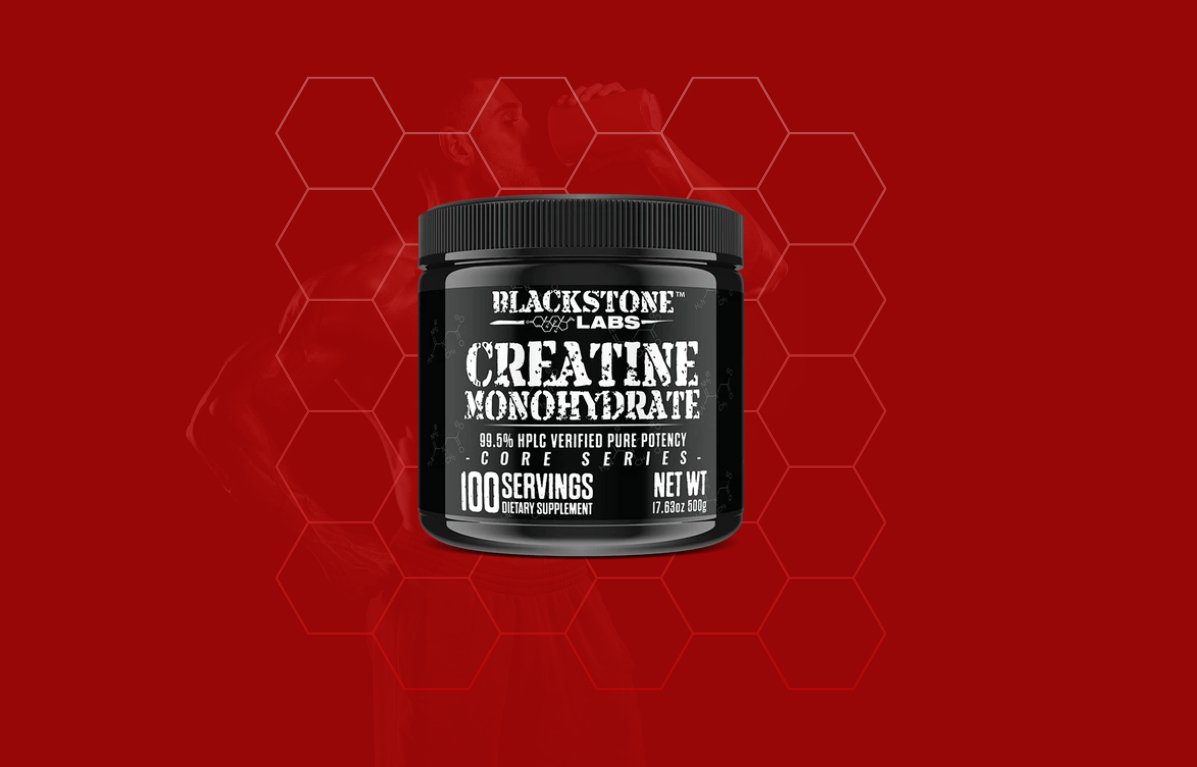Creatine monohydrate is a naturally occurring compound found in the human body, primarily in the muscles and brain. It is responsible for the production of ATP, which is the primary energy source for cells in the brain and body.
ATP provides the energy necessary for muscle contraction, nerve impulse transmission, and other cellular processes that are essential for you to perform in the gym and in daily life.
Creatine is also available in food, particularly in meat and fish. However, the amount of creatine obtained through diet is relatively small, and supplementation is often used to increase its levels in the body.
Creatine Monohydrate in Sports Nutrition

In sports nutrition research, creatine monohydrate has been extensively studied for its effects on physical performance.
Studies have consistently shown that creatine supplementation can improve strength, power, and endurance, particularly during high-intensity exercise. This has been observed in various sports, including weightlifting, sprinting, and high-jump.
The mechanisms behind these effects are related to the role of creatine in the energy metabolism of cells. During intense exercise, the body relies on ATP for energy, and the demand for ATP production exceeds the body's ability to produce it.
Creatine monohydrate supplementation helps to maintain high levels of ATP, allowing for more significant energy production during high-intensity exercise.
Creatine Monohydrate Dosage and Timing

Dosage and timing for creatine supplementation can vary from individual to individual. Anecdotal evidence suggests a loading phase of 20g per day for a week or so, followed by a maintenance phase of 3-5g per day.
However, research has shown that a simply dosage of 5g per day is enough to saturate creatine levels.
When using a loading phase, the body can quickly increase its creatine levels, while the maintenance phase helps to maintain high creatine levels in the body.
The timing of creatine supplementation can also impact its effectiveness, with some studies suggesting that taking creatine after exercise may have a greater impact on muscle recovery and growth.
Taking creatine with a simple carbohydrate source like dextrose or maltodextrin can also help increase insulin, which will drive the creatine into the muscle cell post-workout.
Creatine and Cognitive Function

Creatine monohydrate has also been investigated for its potential benefits on cognitive function. The brain relies on ATP for energy, and creatine supplementation may help increase ATP availability and provide energy for the brain's cells.
Several studies have suggested that creatine supplementation can improve cognitive function, particularly in tasks that require short-term memory, attention, and reasoning.
The exact mechanisms behind these effects are not fully understood, but it is believed that creatine may reduce oxidative stress and inflammation, which are known to contribute to cognitive decline.
Furthermore, creatine has shown potential benefits for individuals with neurological conditions, such as Alzheimer's disease and Parkinson's disease.
Creatine Monohydrate Safety and Side Effects
While creatine monohydrate is generally considered safe for healthy individuals, some potential side effects have been reported. These include gastrointestinal distress, muscle cramps, and dehydration.
Proper dosage and hydration are essential to minimize these risks. Additionally, individuals with certain medical conditions, such as kidney disease, and those who are taking certain medications, such as diuretics, should be cautious when considering creatine supplementation.
In conclusion, creatine monohydrate is a naturally occurring compound that has been extensively studied for its potential benefits on sports performance and cognitive function. Its effects on muscle performance and brain function are well-documented, and its safety has been established for healthy individuals when taken at proper doses.
While more research is needed to fully understand the potential of this supplement, creatine monohydrate remains a popular and effective supplement for athletes and those seeking cognitive enhancement.
